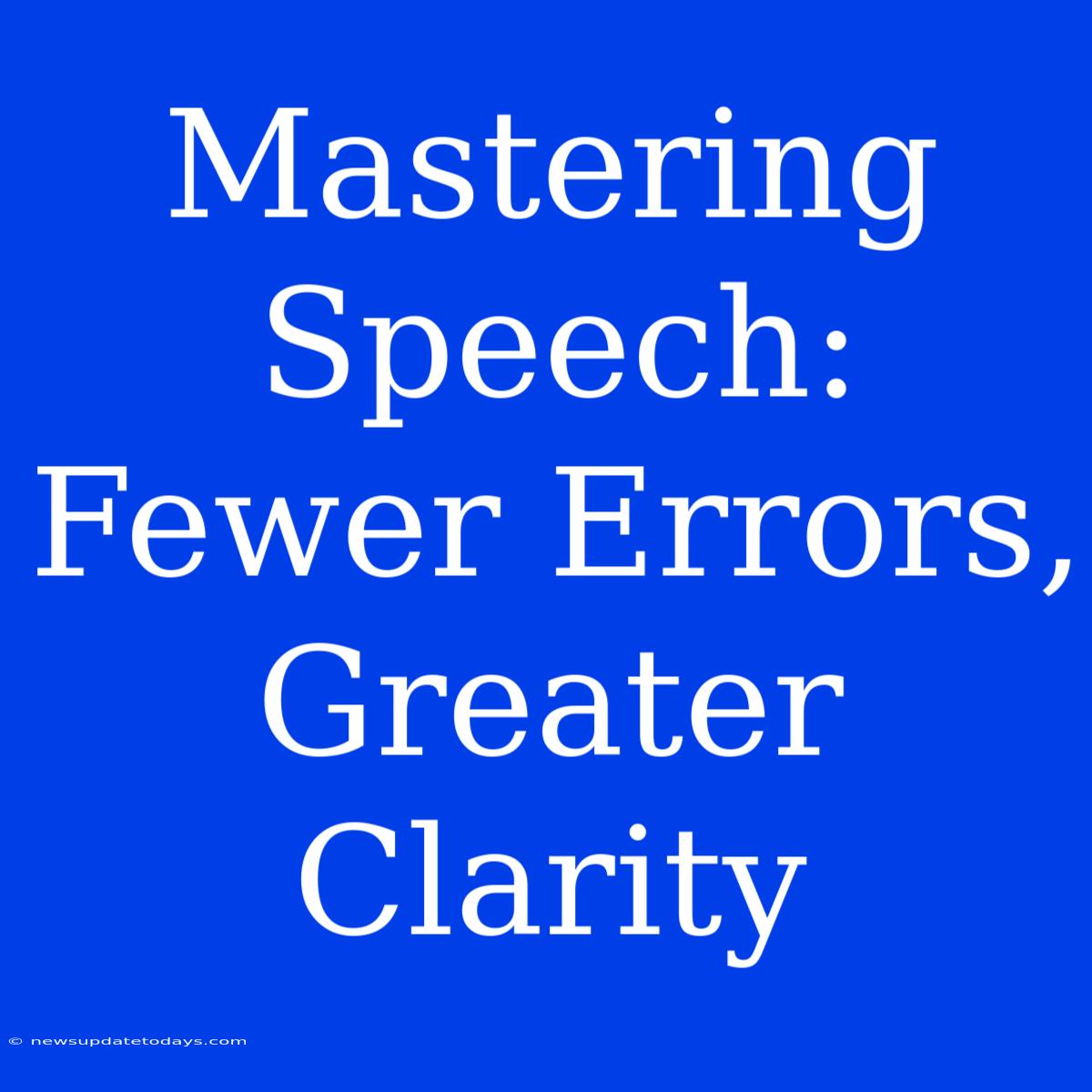Mastering Speech: Fewer Errors, Greater Clarity
Improving your speech, reducing errors, and achieving greater clarity is a journey, not a destination. It requires consistent effort and a focused approach. This article provides actionable strategies to help you become a more confident and articulate speaker.
Understanding the Fundamentals of Clear Speech
Before diving into techniques, it's crucial to understand the core components of effective communication:
-
Pronunciation: Accurate pronunciation is the bedrock of clear speech. Focus on mastering the sounds of your language, paying attention to vowel and consonant sounds. Regular practice with tongue twisters can significantly improve your pronunciation accuracy.
-
Articulation: Articulation refers to the clear and precise movement of your mouth and tongue to produce sounds. Slurring words or mumbling obscures your message. Practice speaking slowly and deliberately, ensuring each syllable is clearly enunciated.
-
Pace and Rhythm: A consistent pace with natural pauses enhances understanding. Avoid speaking too quickly or too slowly. Varying your rhythm keeps your audience engaged and prevents monotony.
-
Volume and Tone: Project your voice clearly, ensuring everyone can hear you comfortably. Modulate your tone to reflect the emotion and intent of your message. A monotone delivery can quickly lose your audience's attention.
Practical Techniques for Error Reduction and Clarity Improvement
Here are some practical steps you can take to refine your speech:
-
Record Yourself: Recording yourself speaking allows you to objectively assess your pronunciation, articulation, pace, and tone. Identify areas for improvement and focus your practice on these specific weaknesses.
-
Practice Regularly: Consistent practice is essential for improvement. Read aloud from books, newspapers, or scripts. Practice impromptu speaking on various topics. The more you speak, the more comfortable and confident you'll become.
-
Seek Feedback: Ask trusted friends, family, or colleagues to provide constructive criticism on your speaking style. Their feedback can provide valuable insights into areas needing attention.
-
Focus on Breath Control: Proper breathing techniques are vital for supporting your voice and maintaining a steady pace. Practice deep, controlled breaths to improve your vocal endurance and prevent breathlessness during longer speeches.
-
Engage with Language: Expand your vocabulary and understanding of grammar. Reading widely and engaging in conversations will naturally enhance your fluency and reduce errors.
-
Utilize Resources: Many online resources, including videos and apps, offer pronunciation exercises and speech improvement techniques. These can provide valuable support in your journey.
-
Embrace Mistakes: Don't let errors discourage you. Mistakes are a natural part of the learning process. Analyze your errors, understand the cause, and focus on improvement.
Mastering Speech: A Continuous Process
Mastering speech is an ongoing process that requires dedication and perseverance. By consistently practicing these techniques, focusing on the fundamentals, and seeking feedback, you can significantly improve your clarity, reduce errors, and become a more confident and effective communicator. Remember, the key is consistent effort and self-awareness. Start small, celebrate your progress, and continue to refine your skills over time.

